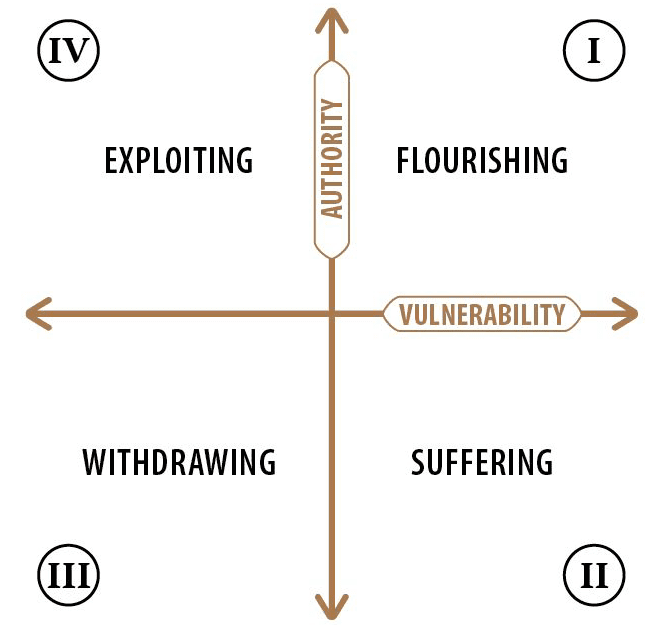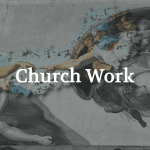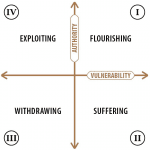
When you hear anyone talk about power, chances are the first things that come to your mind is the abuse of it. If there is one idea that everyone knows about power it is that famous phrase from Lord Acton “Absolute power corrupts absolutely.”
And you don’t need anyone to convince you how true that dictum is.
Did you know studies have revealed that people in power are more likely to use their power to accrue wealth, coerce sexuality, and blind them to their own shortcomings.
A few years ago some Canadian researchers looked into why powerful politicians were so often caught in sexual scandals and after conducting some experiments where they gave people very mild amounts of power in a variety of situations the researchers discovered this wasn’t just a politician problem. Here’s what one researcher actually said in an NPR interview:
“I don’t think this is going to be limited to powerful politicians or CEOs of big companies by any means, I think this can happen in everyday social interactions. In fact, in our own research, just giving people power over a small amount of money in a short laboratory interaction was enough to elicit this overestimation of sexual interest. Volunteers with the power believed their lab partners were acting in sexual ways even when they were not, In other words, when you say “hello” to someone, an ordinary person thinks you said hello. A powerful person thinks you meant helllloooooo.”
Seeing Through Power
Ever since Nietzsche saw the world with his profound and brutal cynicism and declared that everything was about power, we have been rightfully aware of the dangers that come along with wielding any kind of power.
To gain power is to lose your soul.
And so we soften the term, we call it leadership or management, and we pretend that we, in fact are not powerful. Presidents and Senators and military commanders are powerful, not us common folk.
But chances are you have authority that is unique to you that you can either abuse or neglect…or use for the good others.
At it’s best that’s what a leader does.
So this is a series reviewing Andy Crouch’s great little book “Strong and Weak” which is based on a more accessible version of his larger book released a few years ago about power called “Playing God”
Crouch’s point in both books is that when we approach power like it’s an inherently bad thing, we will always disavow the reality of the power we have. But what if you realized that Nietzsche isn’t always right, and power isn’t always corrupting?
In fact, I’ll bet a large portion of people reading this can remember a time when they had unimaginable power over someone who was incredibly vulnerable.
In other words, anyone who has ever been a parent.
Anyone who’s ever been a parent knows the tremendous amount of power they have over this little persons life. But you also know the incredible sense of vulnerability that comes along with it. Having a child, it’s been said, is a bit like having your heart put on skin and walk around outside of your body.
Here’s how Crouch makes this point:
It is an almost precise inversion of Lord Acton’s observation: the more power we have over our children, the more we are willing to sacrifice for them. Love transfigures power. Absolute love transfigures absolute power. And power transfigured by love is the power that made and saves the world.
Power that is transfigured by love is an entirely different kind of power. It’s the kind of power that leads people to lay down their lives for the good of others. It’s why the New Testament can use the word Dunamis (the word for power, where we get the word dynamite) so often in positive ways. Because Jesus redefined what it meant to wield power.
Not Like The Gentiles
So Crouch’s book provides a helpful 2×2 grid (above) that helps frame the conversation in what I found to be pretty insightful ways of talking about power, and I’d like to unpack the different quadrants over the next few days.
But for now: If you are a Jesus follower, the power you’ve been given is not to be power over others, but for others to flourish. You are, in the grid called, to go “up and to to the left” To exercise both the meaning making capacity you have in proportion to the vulnerability that you bear.
In fact, think back over the people who have made a difference in your life. Chances are they had roles as teachers/parents/mentors/friends. If they helped you flourish in your life, it was because they were acting in some kind of authority, and exposing themselves to some type of vulnerability. They had authority because they had the capacity to make a meaningful difference in your life, and they had vulnerability because they were opening themselves up to someone (you) who could potentially hurt them.
This is what Crouch sees as true Jesus-shaped leadership looks like.
This is the difference between power that corrupts and power that leads to flourishing is vulnerability.
And to be clear, what Crouch means by vulnerability isn’t the self-focused, over-sharing that happens on social media (I mean c’mon people, it’s a status update not a journal entry), Crouch is talking about what the word vulnerability really means…woundable.
True leadership that leads to the flourishing of those around you involved you stewarding your power well while remaining vulnerable and open to others. It’s also why leading in Jesus like ways is so hard, and why we are tempted to either lean toward authoritarian styles or to neglect the power we have.
True Jesus-like leadership involves a crown, but it is a crown of thorns.














